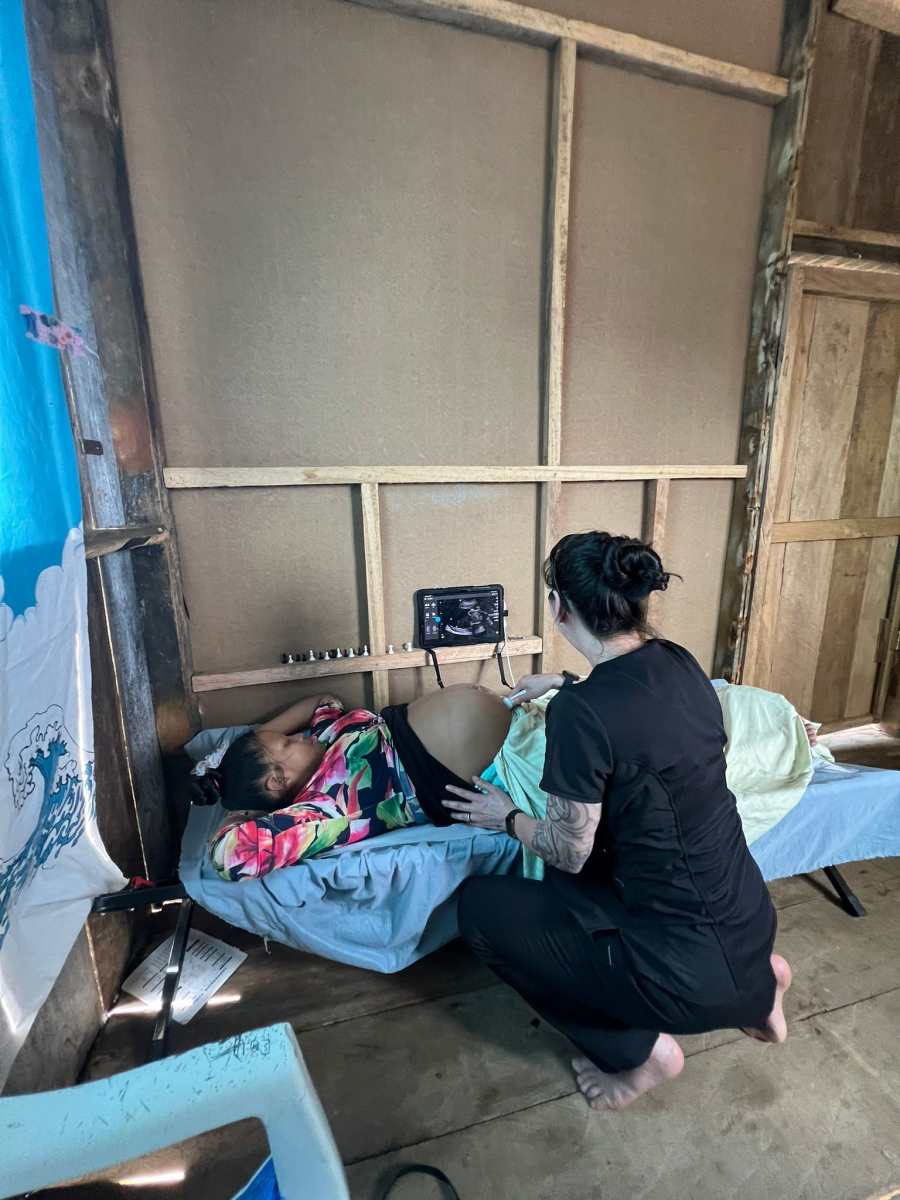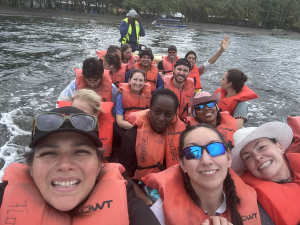This project will facilitate a humanitarian medical service trip to Panama (April 27 – May 3, 2025), in collaboration with Floating Doctors, to provide medical care, health education, and community outreach in remote, underserved areas. A team of University of Lynchburg students and faculty will assist in mobile medical clinics, conduct community health assessments, and provide preventive and acute care for indigenous populations with limited healthcare access. The project aims to enhance healthcare delivery, improve patient outcomes, and foster cross-cultural medical training, equipping participants with critical skills in global health, tropical medicine, and emergency response. This initiative will make a difference by directly addressing medical needs in these communities while preparing the next generation of healthcare providers to work in resource-limited settings.
This project will serve the indigenous Ngäbe-Buglé people and other rural communities in Panama, who experience significant healthcare disparities due to geographic isolation, limited resources, and systemic barriers to medical services. Many individuals in these communities face high rates of malnutrition, infectious diseases, chronic conditions, and maternal-child health challenges with little or no access to routine medical care. By providing direct patient care, preventive health education, and capacity-building initiatives, this project will improve short-term health outcomes while supporting Floating Doctors’ long-term mission of sustainable healthcare development in the region.
The expected impact of this project is twofold:
Immediate Community Health Benefits – By offering direct medical care, screenings, and health education, this initiative will help address urgent medical needs and chronic health conditions, improve preventive healthcare efforts, and support public health interventions in underserved communities.
Long-Term Professional & Educational Growth – For students and faculty, this experience will provide invaluable hands-on training in global health, cultural competence, and field medicine, reinforcing skills in adaptability, leadership, and interdisciplinary collaboration. These learnings will extend beyond the trip, as participants apply their experiences to future careers in medicine, public health, and emergency response, fostering a lifelong commitment to service and humanitarian healthcare.








Our University of Lynchburg Emergency Management and Global Health DMSc team partnered with Floating Doctors to provide medical care to two remote island communities in Panama: Playa Verde and Playa Lorenzo. Over the course of the mission, the provider teams saw approximately 100 patients per day. We focused on primary care, chronic disease management, women’s health, and acute needs, prioritizing children, pregnant women, and the elderly.
In addition to the clinics, we conducted home visits in both communities, hiking through remote terrain to reach patients unable to travel. These visits helped us identify barriers to care and better understand the daily health challenges faced by these populations.
We worked alongside Floating Doctors’ international and local providers, exchanging clinical knowledge and comparing treatment standards. This collaboration allowed us to align global best practices with U.S. protocols and adapt them to resource-limited settings.
One key takeaway was the work of the ManChiChi program. Local midwives travel island to island to provide prenatal, delivery, and postpartum care with minimal resources. They also lead outreach on reproductive health and STI prevention. The program integrates elements of modern medicine with traditional practices, creating a functional blend that respects local culture while improving maternal and adolescent health outcomes.
We also had the opportunity to engage with the Ngäbe-Buglé tribe and other indigenous groups to better understand their medicinal practices and community values. These interactions helped us approach care delivery with greater cultural awareness and respect.
Additionally, we supported the early phase of an Eye Surgery Project aimed at identifying patients with cataracts and pterygium—both common, treatable conditions in the region. We helped initiate a patient registry to support future surgical planning.
This mission improved access to care in underserved areas and contributed to longer-term health initiatives. It also reinforced the value of international medical collaboration in building trust, supporting partner health systems, and promoting stability in remote and austere environments.
I had a wonderful time, learned a lot, and am grateful for the opportunity to serve and have this meaningful experience.